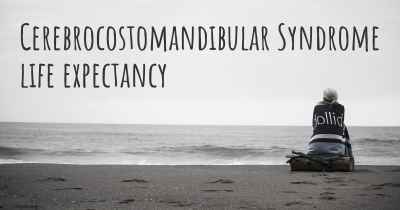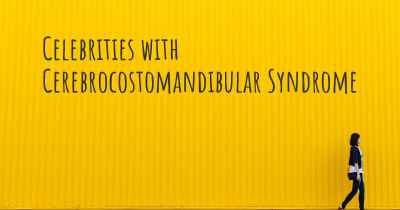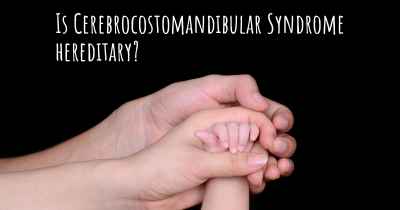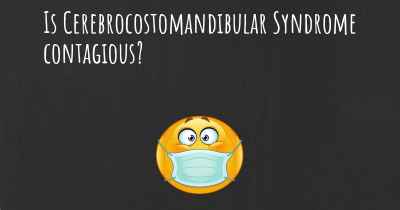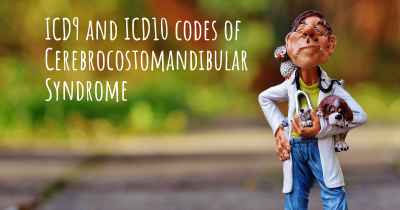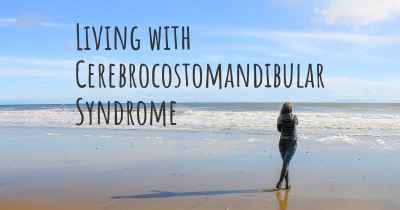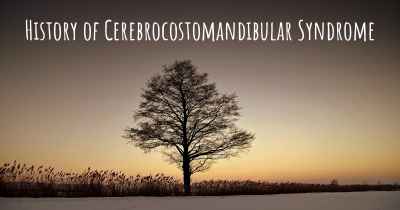Cerebrocostomandibular Syndrome diet. Is there a diet which improves the quality of life of people with Cerebrocostomandibular Syndrome?
Are you aware of a diet that can improve the quality of life of people with Cerebrocostomandibular Syndrome? Is there a diet that is suggested to avoid when having Cerebrocostomandibular Syndrome? See if there is a diet that can improve the quality of life of people with Cerebrocostomandibular Syndrome, recommended and to avoid food when having Cerebrocostomandibular Syndrome

Cerebrocostomandibular Syndrome Diet: Improving Quality of Life
Cerebrocostomandibular Syndrome (CCMS) is a rare genetic disorder that affects the development of the brain, ribs, and jaw. Individuals with CCMS often face challenges related to feeding, swallowing, and overall nutrition. While there is no specific diet that can cure or treat CCMS, a well-balanced and tailored diet can significantly improve the quality of life for individuals with this syndrome.
The Importance of Nutrition
Proper nutrition plays a crucial role in supporting overall health and well-being, especially for individuals with CCMS. It can help manage symptoms, promote growth and development, and enhance the body's ability to fight infections. A balanced diet can also improve energy levels, cognitive function, and overall quality of life.
Key Nutritional Considerations
When planning a diet for someone with CCMS, it is important to consider their specific needs and challenges. Here are some key nutritional considerations:
1. Adequate Caloric Intake:
Individuals with CCMS may have difficulty consuming enough calories due to feeding and swallowing difficulties. It is essential to ensure that their diet provides enough energy to support growth and development. Working with a registered dietitian can help determine the appropriate caloric intake for each individual.
2. Nutrient-Dense Foods:
Focus on including nutrient-dense foods in the diet to maximize the intake of essential vitamins, minerals, and other nutrients. These include fruits, vegetables, whole grains, lean proteins, and healthy fats. Encourage a variety of colorful fruits and vegetables to provide a wide range of nutrients.
3. Texture Modification:
Some individuals with CCMS may have difficulty chewing or swallowing certain textures. It may be necessary to modify the texture of foods to ensure safe and comfortable eating. This can involve pureeing, chopping, or softening foods as needed. Consult with a speech therapist or occupational therapist for guidance on appropriate texture modifications.
4. Adequate Hydration:
Proper hydration is crucial for individuals with CCMS, as dehydration can worsen symptoms and impact overall health. Encourage regular fluid intake throughout the day and consider using thickened liquids if swallowing difficulties are present. Consult with a healthcare professional for specific fluid recommendations.
5. Individualized Approach:
Each person with CCMS is unique, and their dietary needs may vary. It is important to work with a healthcare team, including a registered dietitian, to develop an individualized nutrition plan. They can assess specific challenges, provide guidance on appropriate food choices, and monitor nutritional status over time.
Additional Considerations
In addition to a well-balanced diet, there are a few additional considerations that can further support individuals with CCMS:
1. Feeding Assistance:
Some individuals with CCMS may require feeding assistance, such as the use of feeding tubes or specialized utensils. Working with healthcare professionals can help determine the most appropriate feeding methods and devices to ensure adequate nutrition.
2. Regular Monitoring:
Regular monitoring of growth, weight, and nutritional status is essential for individuals with CCMS. This can help identify any nutritional deficiencies or concerns early on and allow for timely interventions. Healthcare professionals can guide the frequency and type of monitoring required.
3. Multidisciplinary Approach:
CCMS is a complex syndrome that affects multiple body systems. A multidisciplinary approach involving healthcare professionals from various specialties, such as genetics, nutrition, speech therapy, and occupational therapy, can provide comprehensive care and support.
Conclusion
While there is no specific diet that can cure CCMS, a well-balanced and individualized diet can greatly improve the quality of life for individuals with this syndrome. Adequate caloric intake, nutrient-dense foods, texture modifications, hydration, and an individualized approach are key considerations. Working closely with healthcare professionals can ensure that the dietary needs of individuals with CCMS are met, supporting their overall health and well-being.
